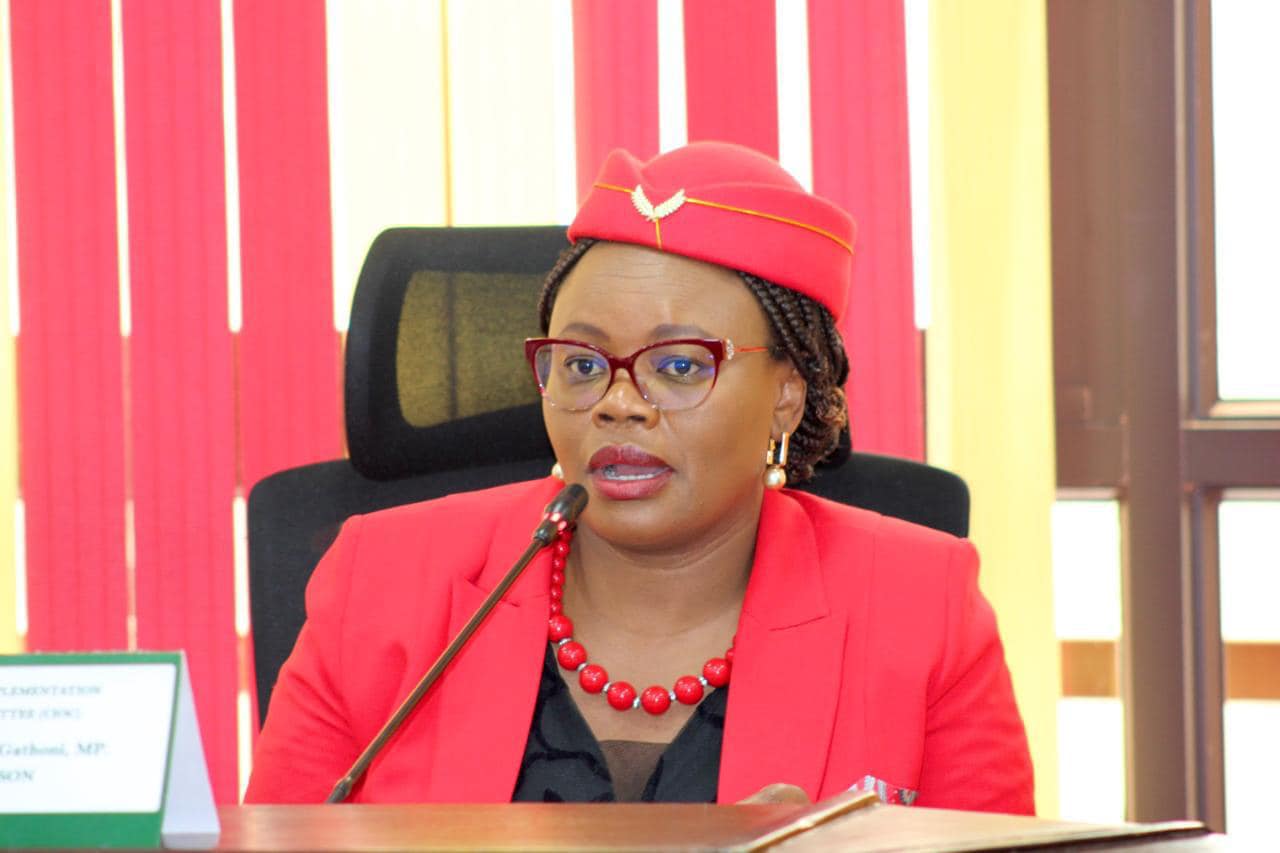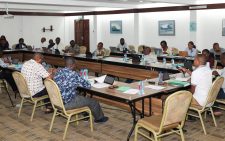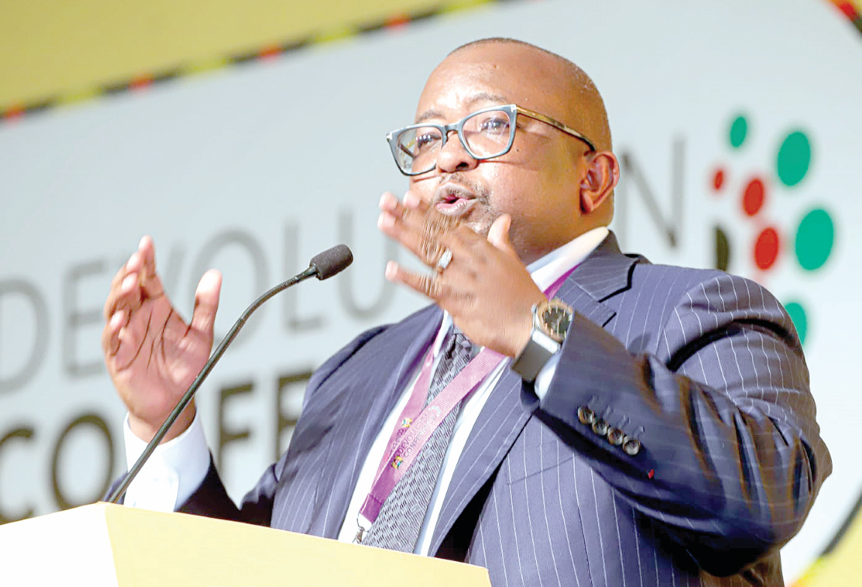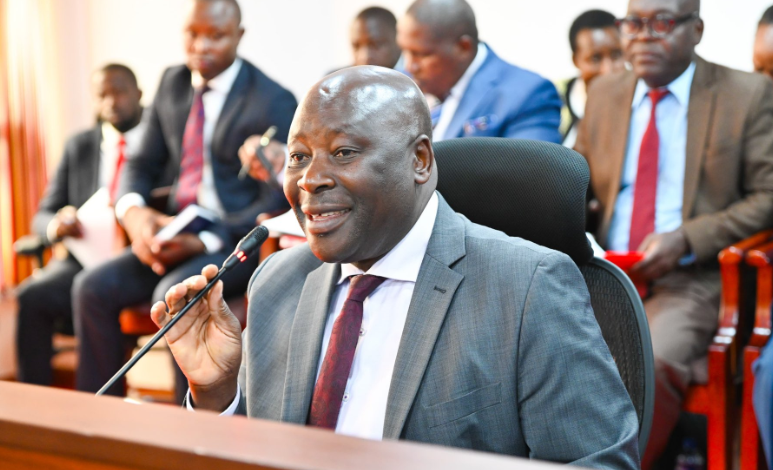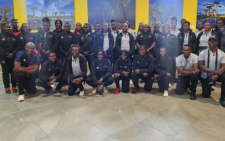Police on horns of dilemma over liquor sale order

The ongoing crackdown on the manufacture and sale of second-generation alcohol has thrown police officers in a dilemma.
They have been ordered to close their businesses, a main source of income either through genuine ownership or stipend.
On one end, the officers are expected to enforce the crackdown on bars and wines and spirits outlets, many of them owned by them or their colleagues.
On the other hand, those who own the alcohol outlets are required to either cease operating them or resign from the force forthwith.
In what has become a lucrative habit, police officers move from one alcohol outlet to another in city estates at night collecting what they call protection fees. The officers are usually assigned to the night bar patrols on condition that they meet high collection targets which are shared by their bosses.
Yesterday, the National Police Service headquarters ordered all police officers owning and operating bars and clubs directly or through proxies in any part of the country to either shut them down or resign.
Interior Cabinet Secretary Kindiki Kithure had on Wednesday directed that in line with the Public Ethics Act, all public officers especially from the Kenya Revenue Authority (KRA), NGAOs, Nacada and the police should not operate such businesses.
The Deputy Inspector General of Police Douglas Kanja, in a notice copied to all regional police commanders and all police formations read: “It has been noted with a lot of concern that very many police officers own and operate bars, clubs and wines and spirits businesses all over the country.”
“Ensure that this directive is passed to all officers up to the post and section level for compliance,”the notice added.
Last month, it was announced that the named government employees will not be allowed to own bars anywhere in the country.
Residents protest
Deputy President Rigathi Gachagua made the announcement citing what he termed as a clear conflict of interest.
“If you are a police officer and you own a bar, resign and run the bar. Or stop operating the bar and continue working in the service,” Gachagua said.
The DP was speaking at the funeral service of 17 people who died after consuming illicit liquor at Kangai and Kandongu villages of Mwea-West sub-county in Kirinyaga.
In Isinya sub-county, locals are blaming the Kajiado Alcoholic Drinks Control board for of colluding with rogue police officers to facilitate manufacture and distribution of second generation alcohol.
In a letter dated February 17, residents of Korompoi, Empatipat, Kilakir, Kimalat and Lucky neighborhood on the outskirts of Kitengela jointly wrote a complaint letter to the board protesting the existence of 15 clubs operating in residential areas, with no action being taken by the authorities.
The residents lamented that despite the board cancelling the licenses of the affected clubs, they continued to operate with abandon.
People Daily is in possession of several letters written by the board and signed by the director Moses Meeli directing immediate closure of the joints, which however remain in business.
“It is contrary to liquor laws and guidelines to allow the operations of alcoholic premises in residential areas,” reads part of the letter.
Residents also claim that most of the joints are owned by some rogue police officers who operate them openly while others operate through proxies.
“The board is the same one that issues the licenses which they later revoke,” said Joel Wesonga, a resident of Korompoi.
In Kisumu, several bars were shut down and licenses withdrawn as the crackdown got underway yesterday.
The operation was led by Kisumu Central Deputy County Commissioner and the Assistant County Commissioner.
Kisumu County Director of Alcoholic and Beverages, Liquor Licensing Collins Okoth said that in Kisumu Central, 77 outlets were operating without liquor licenses.
He added that in Kisumu East sub-county, 16 outlets were operating without licenses while in Muhoroni subcounty, 13 had no licenses.
Innocent traders
In Nyakach, outlets without licenses are 20 while ten are in Seme sub-county, he stated, warning that all of them will be closed immediately.
“Some of the bars have genuine licenses but they are selling shisha, bhang, changaa and waragi. These are illegal,’’ said Okoth.
In Kiambu, the bar owners cautioned government officers against using the crackdown on illicit liquor to harass genuine traders.
Kiambu Liquor Welfare Association Secretary Amos Kibe maintained that his group is not opposed to the government’s war on sale and consumption of dangerous substances packaged as alcohol and vowed to support the initiative so long as it doesn’t target innocent traders.
“We urge our members to remain calm. Licensing of liquor is a devolved function as per the Constitution and no directive can change this fact,” said Kibe.
Kibe spoke as bar owners expressed fears that they may become victims of corrupt government officials out to make a kill by harassing genuine operators.
At Kenyatta Road in Juja sub-county, there was uncertainty among operators of bars situated next to residential areas.
“There is a possibility that some people in government may want to harass bar owners out of malice or for extortion purposes,” said a manager at one of the clubs.
A pub owner in Witeithie James Wainaina said people doing genuine business should be shielded from greedy officials.
“We are in full support of the government’s war. However, this should not be an excuse for extortion by some wayward officers,” said Wainaina.
In Ruiru sub-county, bar owners were apprehensive with many of them waiting for official communication from the county government.
In Mombasa, County police commander Stephen Matu confirmed that a crackdown was on though no arrests had been made or any outlet closed.
“We started a crackdown one week ago. Our officers have been on the ground and there is compliance,” Matu said.
A majority of clubs remained closed for the better part of yesterday while others observed the Mututho law which requires them to open at 5pm in the evening.
“Anyone who will be caught in violation of the directives will be arrested and charged,” Matu said.
A spot-check by People Daily established that those that are within residential areas did not open for fear of being caught up in the crackdown.
Mombasa has been listed among counties with high consumption of alcohol and drugs and substance abuse.
Seal boundaries
Mombasa Governor Abdulswamad Nassir, Likoni MP Mishi Mboko and Mombasa Woman Rep Zamzam Mohamed questioned why the government had failed to arrest drug barons despite having all the security mechanisms.
In Nyandarua County, police commander Omar Arero said several such bars have been closed in the county, adding that there is a plan to seal off boundaries used to ferry the targeted alcoholic drinks from Nakuru and Naivasha.
“We don’t have distillers or manufactures of the second generation drinks in Nyandarua and all are brought from Nakuru and Naivasha,” Arero said.
He said prior to the declaration of the countrywide crackdown on distillers and manufacturers, they had closed about 100 bars in Nyandarua for selling counterfeit and second generation alcohol.
A spot check in Laikipia showed that the crackdown is yet to kick off with police and administrators holding meetings to strategize on how to carry out the crackdown.

